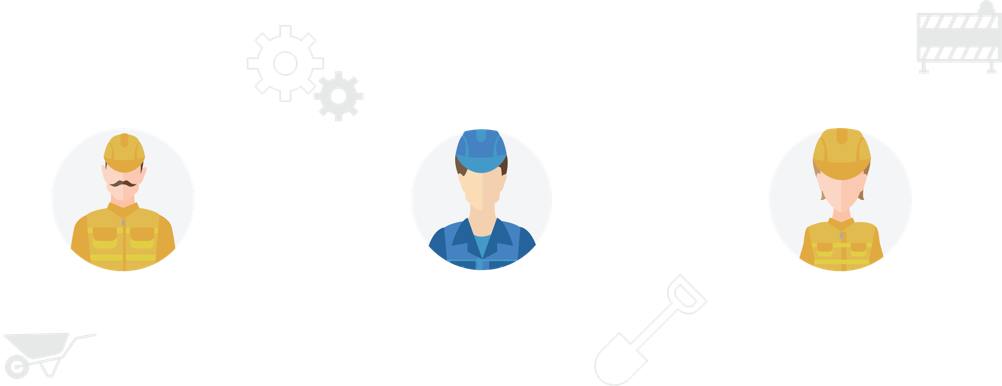
Marine Engine Technicians test, diagnose, inspect, repair, and maintain boat engines and associated boat handling and systems equipment to ensure their effective use and safe operation.
Job Related Skills, Interests and Values
- Reading and interpreting performance codes and standards including manufacturer service manuals, parts bulletins, and technical updates
- Inspecting, equipping, and operating pleasure craft according to Ministry of Transportation regulations
- Selecting, operating, and maintaining hand, cutting, and pneumatic and electric power tools
- Using and maintaining measuring devices including micrometers, calipers, gauges, straight edges, and dial indicators
- Setting up and operating manual oxy-fuel equipment, MIG welding, and shielded metal arc welding equipment
- Laying out and installing outboard and inboard engines; laying out, installing, and aligning stern drive engines and mechanical controls, fuel tanks, wiring, jet drive and hydraulic systems, controls, and instrumentation
- Selecting, repairing, and replacing electrical wires and connectors
- Maintaining, repairing (and removing, if required), disassembling, cleaning, and reconditioning engines and components to manufacturer specifications; performing tune-ups
- Testing, maintaining, and repairing fuel and ignition systems, starting and charging systems, cooling systems, ventilating and exhaust systems, and steering and generating systems
- Providing excellent customer service by providing honest feedback regarding vehicle condition, explaining repairs and costs, providing written statements of work performed, and effectively resolving complaints
- Documenting work activities and writing operational reports
- Acquiring an excellent theoretical and practical knowledge of electrical, hydraulic, and mechanical systems
What Preparation and Training Do You Need?
- Secondary school diploma or equivalent; math, physics, and English credits an asset
- High school students may benefit from Mining Specialist High Skills Major program
- Completion of an apprenticeship, including 4,280 hours on-the-job and three 8-week blocks of in-school training
- Exam to obtain Certificate of Qualification
What's Your Future as a Marine Engine Technician (435B)?
- Full-time, 35-40 hours per week; evening/weekend/ overtime work common during peak periods
- Work tends to be seasonal; increase year-round employability by seeking employment in winter recreational businesses (ski lift mechanic, snowmobile engine technician)
- Employers include marine dealers, marine engine manufacturers, and independent repair shops
Wage Rate
Apprentice wage increases with skill and experience. Fully qualified workers earn an average of $32.60-$46.55 per hour.
Self-Rating
Marine Engine Technician (435B)
| Ask Yourself: | Yes | No |
|---|---|---|
| Do you have good hand-eye coordination, and enjoy working with different types of hand tools? | ||
| Do you have good reading, writing, mathematical, measuring and problem-solving skills? | ||
| Ability to inspect, diagnose and repair? | ||
| Are you able to follow Health & Safety guidelines? Are you able to lift up to 50 lbs? | ||
| Do you have a good working knowledge of boat engines? Both gasoline and diesel? | ||
| Can you read and understand blueprints and diagrams? | ||
| Are you reliable, a self-starter and able to work with minimal supervision? Can you start and finish work on time? |
If you checked YES to the majority of these questions, a career as a Marine Engine Technician (435B) may be for you!
You might want to look at these similar trades as well;
- Small Engine Technician
- Automotive Service Technician
- Industrial Millwright Mechanic
Bicycle Mechanics build, maintain, and repair bicycles to ensure proper functioning and safety.
Automotive Service Technicians, sometimes referred to as Motor Vehicle Mechanics, inspect, diagnose, repair, and service mechanical, electrical, and electronic systems and components for cars, buses, and trucks. They also perform major repair and replacement of mechanical units on newly assembled motor vehicles. Technicians may choose to specialize in engine and fuel systems, brakes, drive lines, suspension, electrical and electronic systems, or diagnostic services.
Small Engine Technicians service and repair small gasoline and diesel-powered equipment including garden tractors, outboard motors, chainsaws, and lawn mowers.
Industrial Mechanic Millwrights install, maintain, repair, and remove stationary industrial machinery, mechanical equipment, and automated and robotic systems. They most often carry this work out in industrial plants and factories.